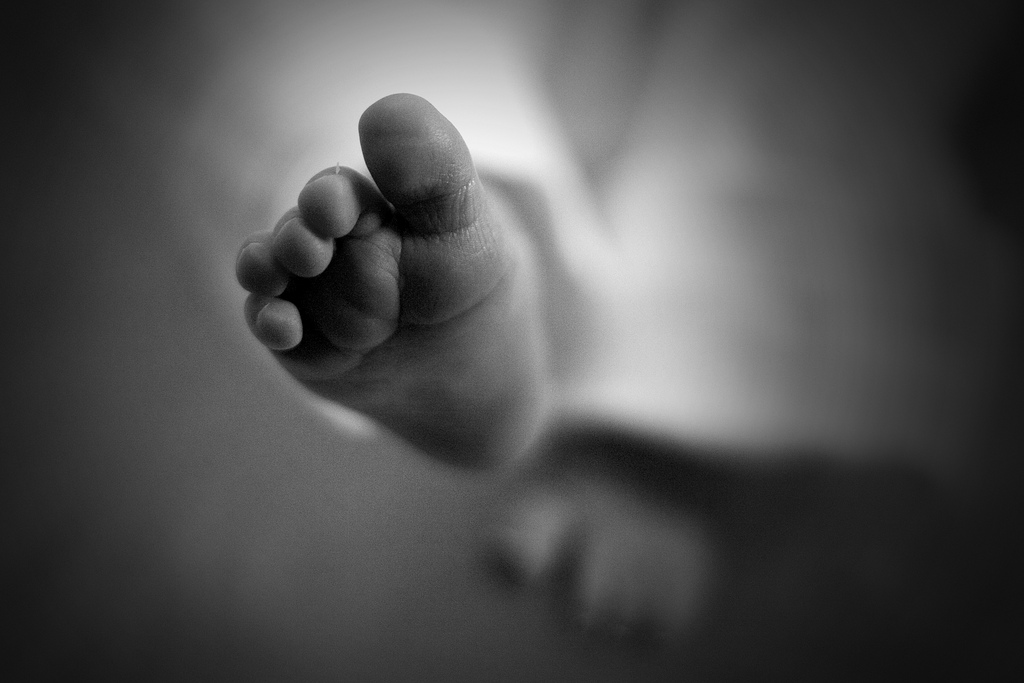According to the recent report by MaternityCare Consumers of Alberta Network (MCAN), Alberta’s maternity care is “in the midst of a crisis.” MCAN identifies the primary cause to be an insufficient number of care providers, including midwives, for low-risk pregnancies. The alarming findings of the report are not especially surprising given that, even in Edmonton, securing a midwife is entirely a matter of luck.
There are only 89 midwives registered in Alberta, and fewer than 20 working in Edmonton. These low numbers are caused by Alberta Health Services’ (AHS) regressive funding system.
A memorandum of understanding between AHS and the Alberta Association of Midwives ensures publics funding for midwifery services, but caps the total budget available for those services. While physicians are unlimited in the number of clients and procedures for which they can bill, AHS restricts individual midwives to 40 “courses of care” annually (a full-time midwife in B.C. provides between 40 and 60), and funding only 2,527 courses of care for 2014-2015.
The province simply does not fund enough courses of care for midwifery to be a reliable option.
In Edmonton, women describe the process of trying to secure a midwife as nearly impossible; the MCAN report refers to it as “winning the midwife lottery.” The waiting lists are notoriously long, and women seeking a midwife don’t have the luxury of choosing which midwife they want.
Edmonton-area doula Alyssa Weber explains that securing a midwife is so difficult, “if you’re lucky enough to get one, you stick with her no matter what.”
Weber sees women pressured to choose their pregnancy care the moment they get a positive pregnancy test. “If you don’t find out you’re pregnant right away, or don’t apply for a midwife soon enough, you may not get one.” As a result, those who could most benefit from the attentive one-on-one care of a midwife — young women and girls with unplanned first pregnancies, for example — are least likely to get one. But women trying to get pregnant have no guarantees, either.
Weber knows of women so desperate to avoid giving birth in hospital they choose to deliver unassisted at home instead. “It’s not unreasonable,” says Weber. “But there are risks.”
Albertan women are putting themselves at risk because the hospital system is too overloaded to give them the birth experience they deserve. Women are coerced into accepting routine interventions simply to make their deliveries more convenient for physicians. MCAN’s report refers to women who were “‘thrown the dead baby card’ when they questioned or wanted to refuse interventions.
Weber’s description of the hospital deliveries she’s attended — including the birth of her first child — sounds like an assembly line. “In hospitals women are pressured to birth in a timely manner,” she explains. “If you’ve been pushing for more than two hours you’re threatened with surgery. […] You can’t be tensed up with fear when you’re trying to open up. It becomes a self-fulfilling prophecy and they’ll call for a C-section.”
The high volume of low-risk hospital deliveries prevents otherwise caring doctors and nurses from providing the most important thing women in labour need: time.
“Birth has all to do with patience, not with being effective,” says midwife Kersten Gafvels. “When everything is progressing well, all you need is time.”
Gafvels and long-time friend and fellow midwifery activist Margo Carpenter saw a need for a different model of care in Edmonton. They founded Edmonton’s Lucina Centre to provide a safe alternative to hospital deliveries for women unable to birth at home.
In addition to numerous wellness services, the Centre’s big draw is water birth. When I ask why, Gafvels doesn’t miss a beat: “Pain relief,” she says. Water birth is an alternative to epidurals, they explain, because simply being submerged in warm water alleviates pain and allows women to relax. “Having had a water birth,” says Carpenter, “I can say I would never have another birth any other way.”
Increasing funding for midwifery services makes fiscal sense. The costs of routine medical interventions for low-risk births add up considerably. An epidural alone costs approximately $1,200, while a professional birthing pool for under $500 can sustain 20 deliveries per year.
If the province-wide cap on courses of care were removed Albertan midwives could work at their full capacity and more midwives would be able to move here to provide these dearly needed services.
Midwifery is a women’s profession that takes as its underlying assumption women’s ability to give birth (under normal circumstances) without medical intervention. Given the obvious financial benefits to increasing access to midwifery services, AHS’s limited funding for midwifery is complicit in sexist stigma.
The memorandum of understanding between AHS and the Alberta Association of Midwives ends on March 31 2015. Newly elected Minister of Health Stephen Mandel has the opportunity to end Alberta’s maternity care crisis. The question remains whether he’ll take it.
Marcelle Kosman is a rabid feminist and PhD candidate at the University of Alberta.
Photo: flickr/Jesse van Kalmthout




